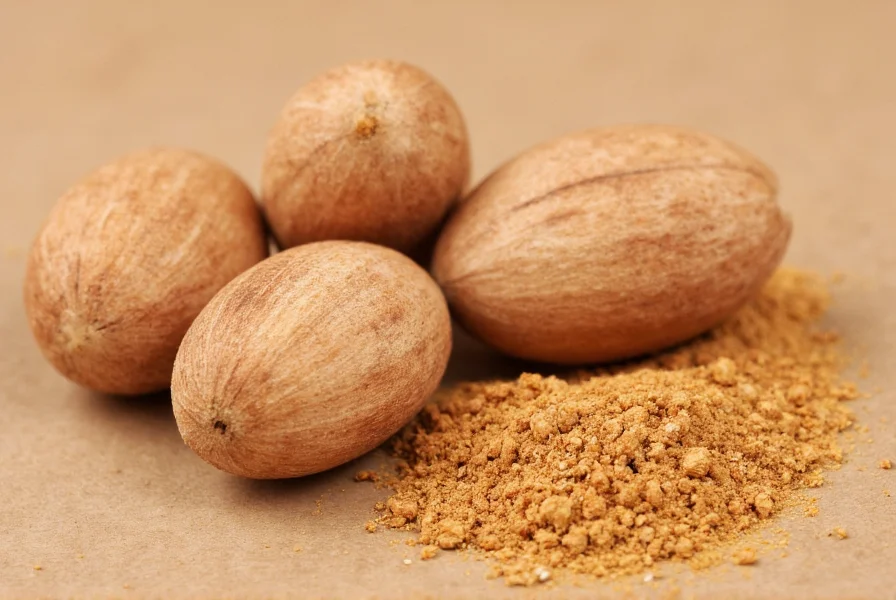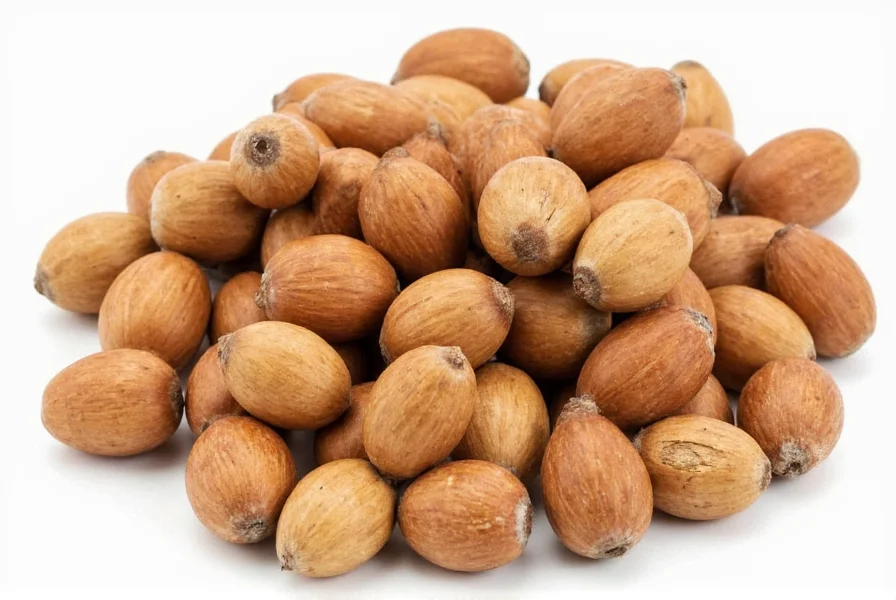Nutmeg's misleading name causes understandable confusion, especially for those managing nut allergies. Let's clarify this common misconception with science-based facts that matter for your kitchen and health.
What Exactly Is Nutmeg?
Nutmeg comes from the seed of the Myristica fragrans tree, a tropical evergreen native to Indonesia's Banda Islands. When harvested, workers remove the fruit's fleshy exterior to reveal the hard seed inside—the nutmeg. The red membrane surrounding this seed becomes mace when dried.
Botanically speaking, nutmeg is classified as a seed, not a nut. True nuts (like almonds, walnuts, and pecans) are hard-shelled fruits containing both the seed and fruit wall. Nutmeg lacks this botanical structure entirely.

Why the Confusing Name?
The term "nut" in nutmeg stems from its physical appearance—a hard, walnut-sized seed. Early European traders in the 16th century named it based on superficial resemblance, not botanical classification. This historical naming quirk continues to cause confusion centuries later.
Understanding this distinction is crucial for people with nut allergies who need accurate information about potential risks. The naming similarity doesn't indicate any biological relationship between nutmeg and actual nuts.
Nutmeg and Nut Allergies: What Research Shows
Multiple studies confirm that nutmeg doesn't trigger reactions in people with tree nut allergies. The American College of Allergy, Asthma, and Immunology states that nutmeg allergy is extremely rare and unrelated to tree nut allergies.
| Allergen Type | Reaction to Nutmeg | Scientific Basis |
|---|---|---|
| Tree Nut Allergy | Generally safe | No shared protein structures |
| Peanut Allergy | Generally safe | Different botanical families |
| True Nutmeg Allergy | Rare reactions possible | Individual sensitivity to myristicin |
Important Considerations for Allergy Management
While nutmeg itself isn't a nut, these factors require attention:
Cross-Contamination Risks
Some spice manufacturers process nutmeg in facilities that also handle tree nuts. Always check packaging for statements like "processed in a facility that also processes nuts" if you have severe allergies.
Pre-Mixed Seasoning Blends
Many commercial spice blends combine nutmeg with other ingredients. Always read labels carefully—"everything seasoning" or "pumpkin spice" mixes might contain nut ingredients.
Individual Sensitivities
Though extremely rare, some people develop specific nutmeg allergies unrelated to nut allergies. Symptoms would include hives, digestive issues, or respiratory problems after consuming nutmeg.
Nutmeg vs. Mace: Understanding the Relationship
Mace comes from the same Myristica fragrans fruit as nutmeg—it's the reddish aril (lacy covering) surrounding the nutmeg seed. Like nutmeg, mace is not a nut and shares the same allergy profile. Both spices contain similar compounds but offer distinct flavor profiles.
Practical Guidance for Safe Consumption
For those managing nut allergies:
- Choose whole nutmeg seeds when possible—they're less likely to have cross-contamination than pre-ground versions
- Look for certified allergen-free spice brands if you have severe allergies
- Grind your own nutmeg using a dedicated spice grinder
- When dining out, ask specifically about nutmeg preparation methods
- Consult your allergist about incorporating nutmeg into your diet
Final Safety Assessment
Nutmeg remains safe for nearly all individuals with nut allergies when consumed in typical culinary amounts. The does nutmeg contain nuts concern stems entirely from linguistic confusion rather than botanical reality. However, always prioritize your specific health circumstances and consult medical professionals about your individual allergy management.
Frequently Asked Questions
Is nutmeg considered a tree nut for allergy purposes?
No, nutmeg is not classified as a tree nut. It's a seed from the Myristica fragrans tree with no botanical relation to tree nuts like almonds or walnuts. Major allergy organizations don't include nutmeg in tree nut allergy protocols.
Can I eat nutmeg if I have a peanut allergy?
Yes, people with peanut allergies can typically consume pure nutmeg safely. Peanuts are legumes, and nutmeg is a seed from a tropical fruit—there's no cross-reactivity between them. Always check for potential cross-contamination in processed products.
Why do some people think nutmeg contains nuts?
The confusion comes from the word "nut" in nutmeg's name, which refers to its physical appearance resembling a nut, not its botanical classification. Early European traders named it based on this visual similarity, creating a persistent misconception that continues today.
Is nutmeg safe for school lunchboxes when nut-free policies are in place?
Generally yes, as nutmeg isn't classified as a nut by food safety authorities. However, some extremely cautious schools may restrict it due to the name confusion. Check your specific school policy and consider using mace as an alternative if concerns exist.
Can nutmeg cause allergic reactions similar to nuts?
True nutmeg allergies are extremely rare and unrelated to nut allergies. Reactions would stem from sensitivity to compounds in nutmeg itself (like myristicin), not cross-reactivity with nut proteins. If you experience symptoms after consuming nutmeg, consult an allergist for proper testing.











 浙公网安备
33010002000092号
浙公网安备
33010002000092号 浙B2-20120091-4
浙B2-20120091-4